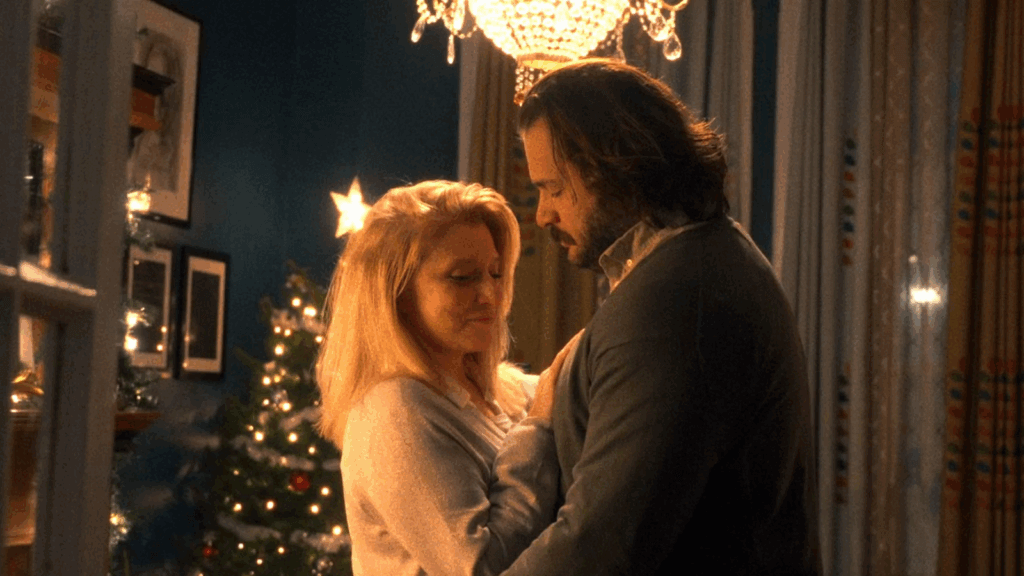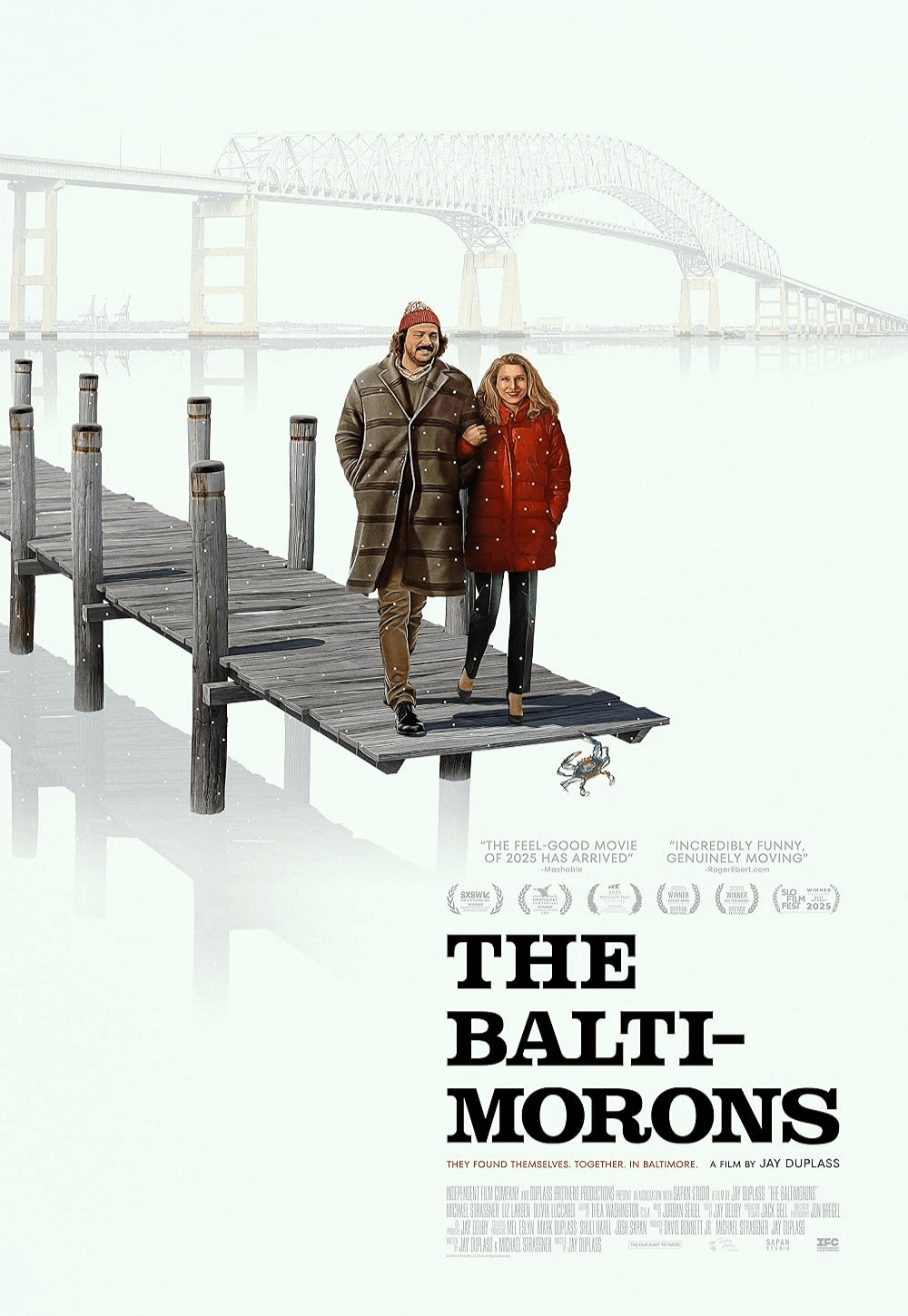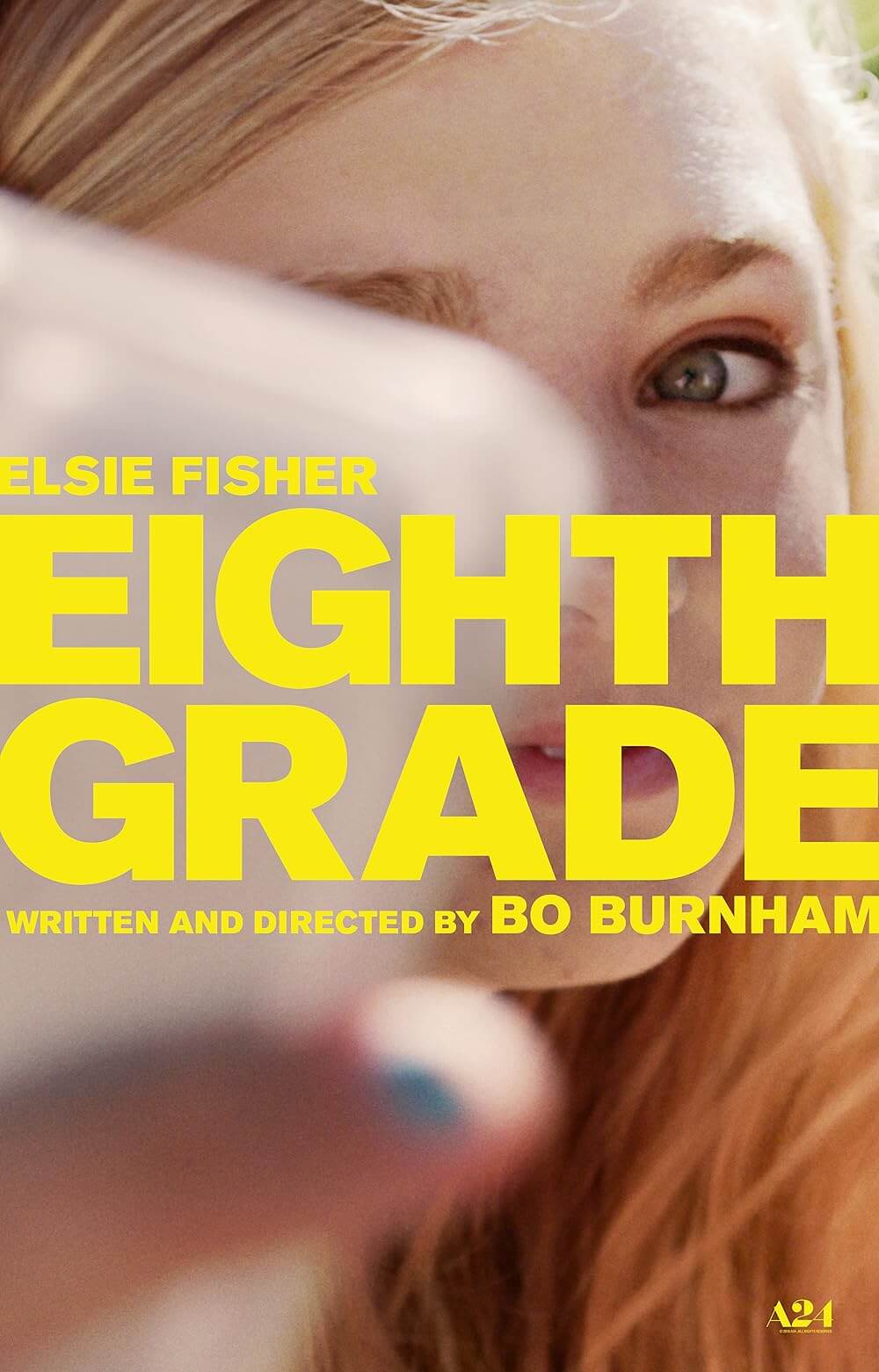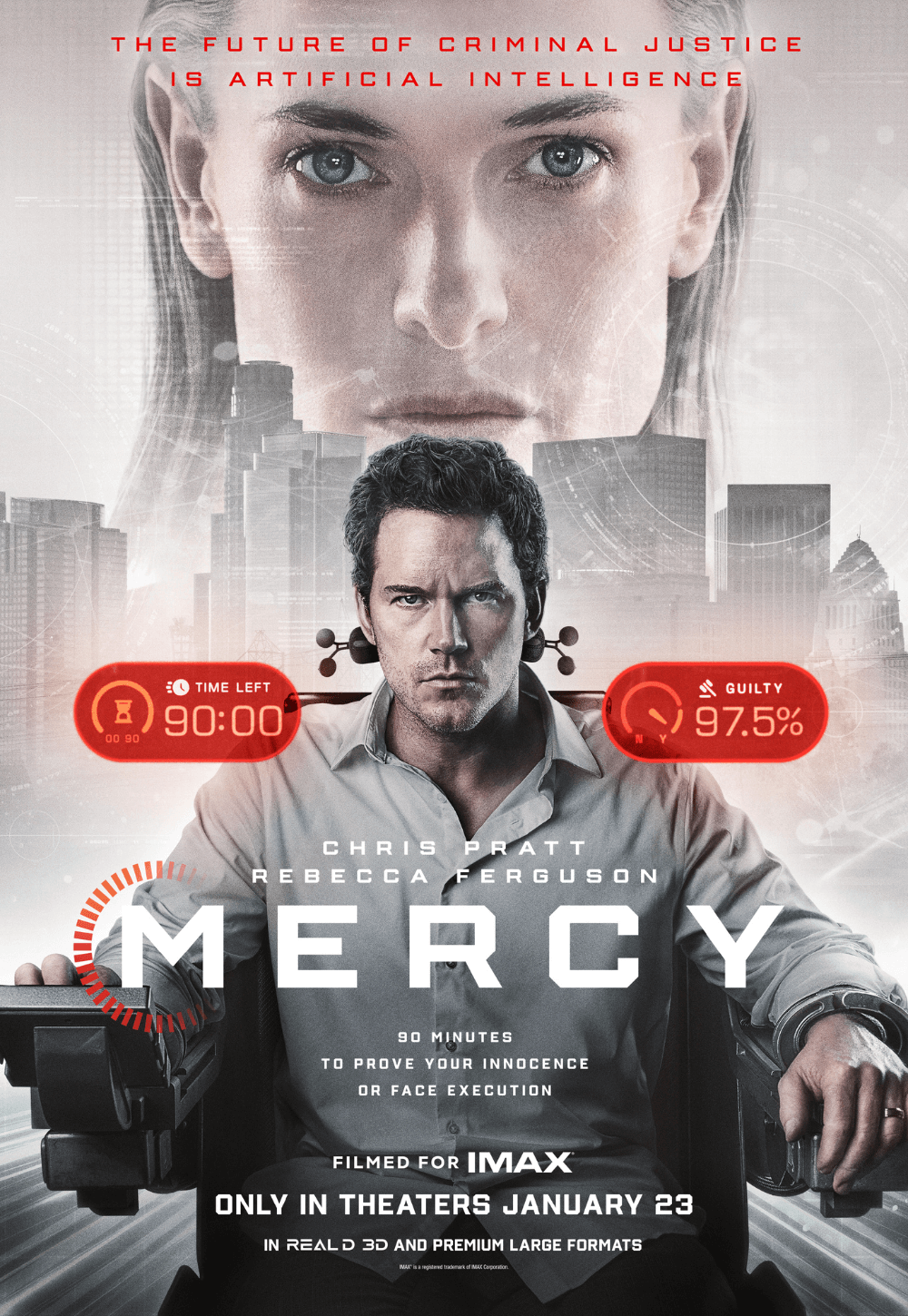
The Baltimorons
By Brian Eggert |
IFC’s strategy of releasing The Baltimorons in September makes me wonder if studios have taken a hint from department stores that keep releasing their holiday wares earlier every year. This scrappy Christmastime comedy may have played better during the November and December season. However, it would have likely been lost in the onrush of year-end awards contenders crammed into theaters. It’s the kind of movie that gets unjustly overlooked. The production is modest and reminiscent of an earlier time in independent filmmaking, where a few characters, a chatty script, a modest story, and some minimalist camerawork deliver a wondrously romantic, observant comedy. Movies like The Baltimorons remain in short supply today, though they were somewhat common twenty years ago. Indeed, the movie hardly breaks new ground—it follows two mismatched people who meet on Christmas Eve and form an unlikely bond, a description that’s about as formulaic as they come. But Jay Duplass balances big laughs with unexpected warmth, while Michael Strassner and Liz Larsen’s strong performances deepen both the comedy and emotion.
Duplass makes a return to directing feature films after helming a series of indies—mainly in the no-frills mumblecore subgenre, but also a couple of mini-major titles made alongside his brother Mark. My favorite of their films will always be Baghead (2008), a funny yet unnerving character piece that dips its toe into the mumblegore sub-subgenre. Since their last movie in 2012, Jay has been acting in television and film, while also serving more often as co-head of the siblings’ production company, Duplass Brothers Productions. In their 2018 book, Like Brothers, they discuss how they started the company with the hope of becoming the next Coen brothers, but their plans and personal ambitions soon went separate ways. Jay mentions in the press notes for The Baltimorons that he recently realized he hadn’t made a film in over a decade and wanted to keep the filmmaking dream alive. He found Strassner on Instagram. They got to talking. And a few years later, here we are.
Strassner plays the amiable Cliff, a former improv comedian who struggles with alcoholism and survived a suicide attempt not long ago. He’s about to spend Christmas Eve with his fiancée, Brittany (Olivia Luccardi), and her family. She associates his improv with his drinking, and therefore disapproves when a friend asks him to perform in a holiday show. But before they arrive at her family’s place for the festivities, he slips on a step and cracks a tooth. The only dentist open is Didi (Larsen), a no-nonsense type who is immune to his distinct charisma and nitrous-induced flirtations. With his tooth fixed, Cliff discovers his car has been towed. Didi offers to give him a ride. And since Brittany’s family didn’t wait for him before eating, nor did she save him a plate, and Didi is a divorcée with no plans, Cliff offers to buy her dinner (“We’re gonna need that tummy full.”). This bearlike jokester eventually convinces Didi to drop her guard, and they end up spending the day and even the night together, getting into a series of misadventures around Baltimore.

The movie takes its title from Cliff’s former improv show, and much of The Baltimorons’ appeal resides in Cliff’s sharp wisecracks and quick wit, as well as the relationship that develops between Cliff and Didi. A scene where Didi resolves to stop by her newly remarried ex-husband’s house to visit her daughter and granddaughter, with Cliff in tow (“Super thrilled to be here,” he declares on repeat), allows the comedian to improvise a scenario where Didi can show up her ex. This gesture, of course, endears Cliff to Didi. Soon, they end up at the show where Brittany didn’t want him to perform. Didi joins him onstage, and for various reasons connected to Cliff’s past, it’s excruciating yet sort of sweet. It’s also a significant step forward for Cliff’s passion as an artist, that he performs without being under the influence. At the same time, Didi’s interest grows for her unlikely companion. Their time together raises questions, with Brittany perhaps not concerned enough about where her soon-to-be husband is, while Didi uses the night to reclaim her sense of self-worth after her divorce.
Through all of these rather episodic misadventures, Duplass and Strassner develop a structure reminiscent of Before Sunrise (1995) or even Roman Holiday (1953), where, by chance, two people explore a city and fall for each other. This is warm-hearted stuff, earnest and unfussy in its verisimilitude. Strassner and Larsen exude chemistry and pathos, and their rapport snowballs from their first scenes together into an avalanche by the finale. Duplass and cinematographer John Bregel shot The Baltimorons on location, using naturalistic colors and settings to give the 99-minute feature a feeling of authenticity. There’s not one false choice here—not one artificial or forced moment. When the movie delves into profound speeches and emotional breakthroughs, they emerge from these well-developed, somewhat damaged characters, who approach their pain differently: Cliff is an open wound, while Didi is a clenched jaw. They meet somewhere in the middle, and while modest in its scope, it feels monumental in the moment.
Doubtless, this will be many viewers’ first exposure to Strassner, a Baltimore native, comedian, and actor with many film and television credits to his name—though, nothing I’ve seen outside of a two-episode stint on Parks and Recreation (2009-2015). He cowrites with Duplass here, showcasing his natural charm, humor, and dramatic range. Duplass’ treatment of Strassner reminds me of how Judd Apatow has championed talent such as Steve Carell (The 40-Year-Old Virgin, 2005), Seth Rogen (Knocked Up, 2007), Amy Schumer (Trainwreck, 2015), and Pete Davidson (The King of Staten Island, 2020), launching their respective careers on the big screen. However, unlike Apatow’s wide-appeal comedies with commercial backing, The Baltimorons may have a shorter reach given the limited distribution of the average IFC release. For Strassner’s sake, I hope people seek this out; they should. It’s a delightful and moving comedy, and something I’ll likely revisit when the snow starts to fall.

Thank You for Supporting Independent Film Criticism
If the work on DFR has added something meaningful to your love of movies, please consider supporting it.
Here are a few ways to show your support: make a one-time donation, join DFR’s Patreon for access to exclusive writing, or show your support in other ways.
Your contribution helps keep this site running independently. However you choose to support the site, please know that it’s appreciated.
Thank you for reading, and for making this work possible.
Brian Eggert | Critic, Founder
Deep Focus Review







